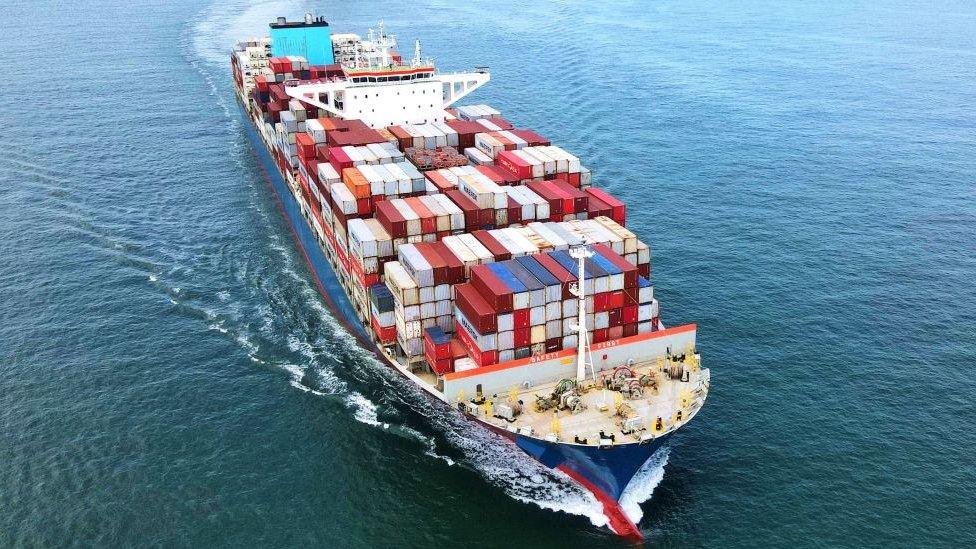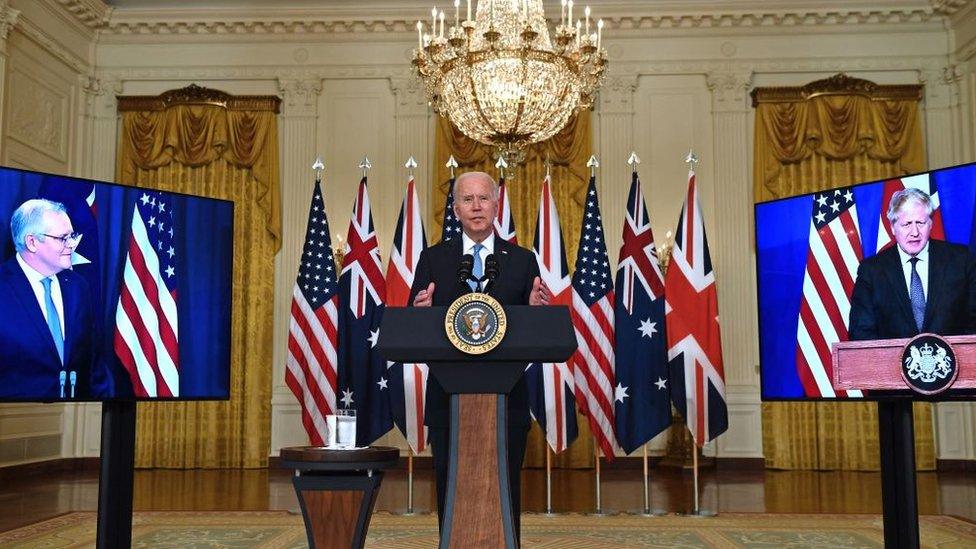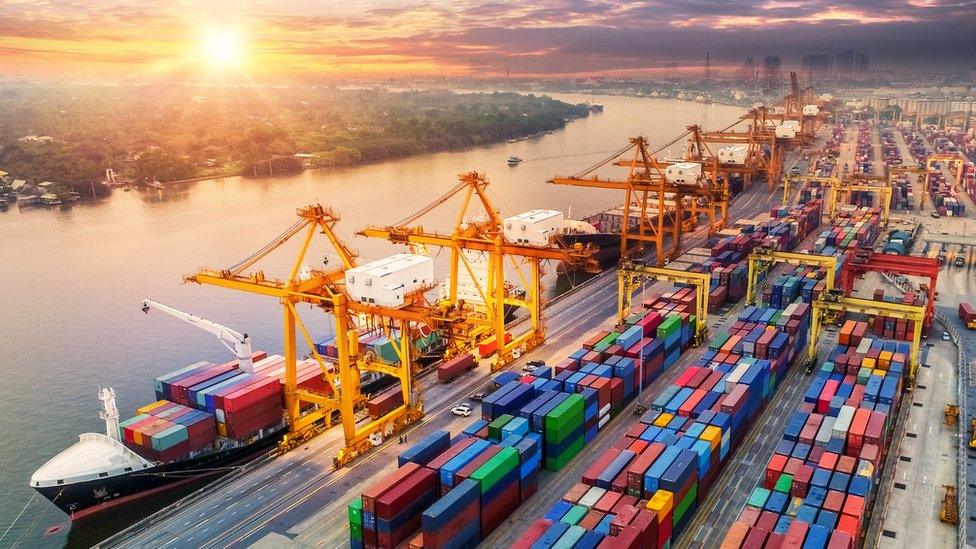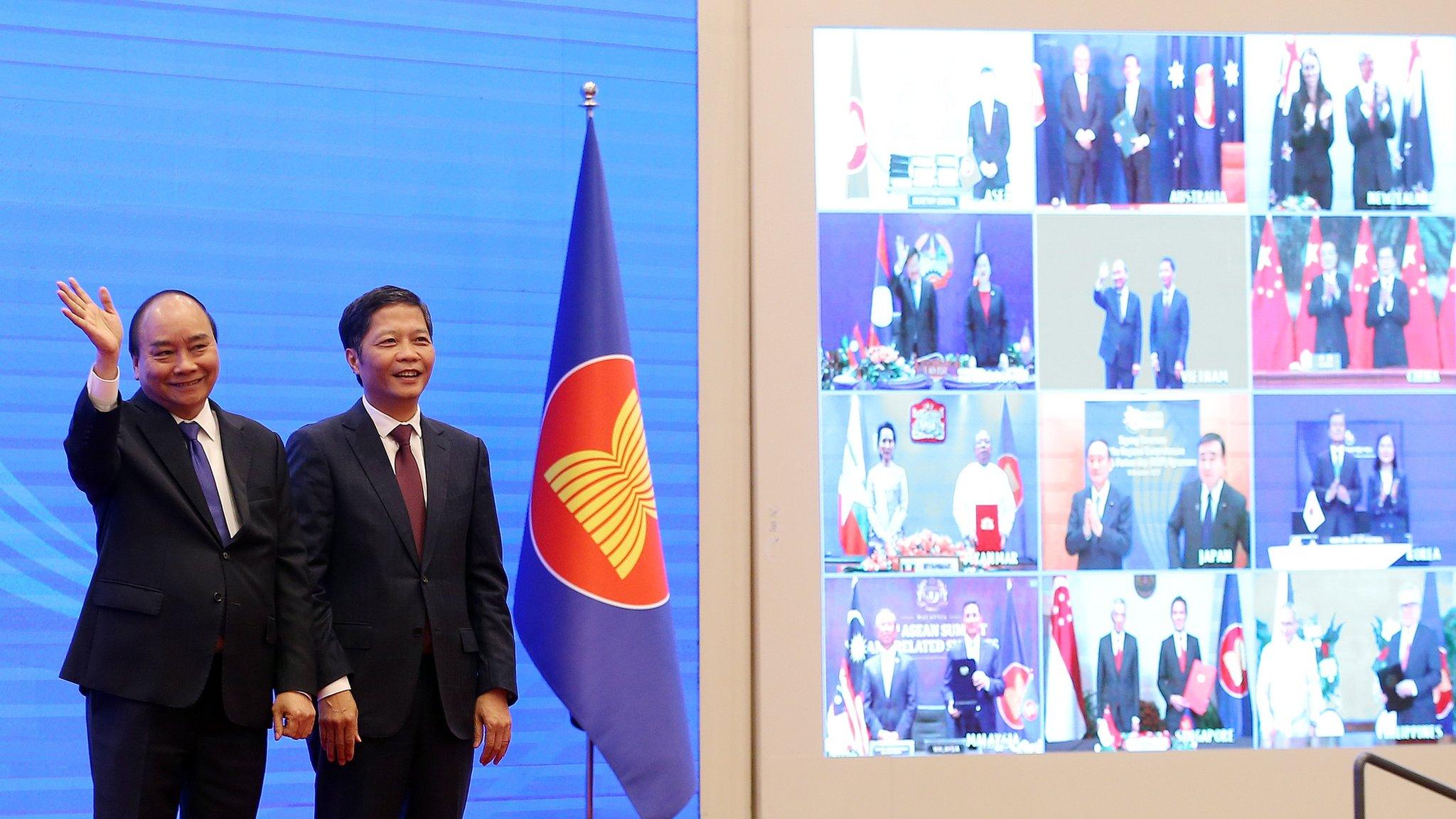China applies to join key Asia-Pacific trade pact
- Published

China has applied to join a key Asia-Pacific trade pact as it attempts to strengthen its position in the region.
The move comes the day after a historic security deal between the US, UK and Australia was unveiled.
The pact that eventually became the Comprehensive and Progressive Agreement for Trans-Pacific Partnership (CPTPP), was created by the US to counter China's influence.
However, former President Donald Trump pulled the US out of it in 2017.
Chinese commerce minister Wang Wentao said the world's second largest economy had submitted its application to join the free trade agreement in a letter to New Zealand's trade minister, Damien O'Connor.
New Zealand acts as the administrative centre for the pact.
Mr Wang and Mr O'Connor then held a telephone conference to discuss the next steps following China's application, the Chinese Ministry of Commerce said.
The original Trans-Pacific Partnership (TPP) was promoted by then-President Barack Obama as an economic bloc to challenge China's increasingly powerful position in the Asia Pacific.
After Mr Trump pulled the US out of the deal, Japan led negotiations to create what became the CPTPP.
The CPTPP was signed in 2018 by 11 countries, including Australia, Canada, Chile, Japan and New Zealand.
Regional trade arrangements
In June, the UK formally launched negotiations to join the CPTPP, while Thailand has also signalled interest in joining the agreement.
Joining the CPTPP would be a significant boost for China, especially after it signed up to a different free trade agreement with 14 countries - called the Regional Comprehensive Economic Partnership (RCEP) - in November.
RCEP is the world's largest trading bloc, with South Korea, China, Japan, Australia and New Zealand among its members.
Historic security agreement
China's announcement that it has officially applied to join the CPTPP comes the day after the UK, US and Australia launched a historic security pact, in what has been seen as an effort to counter Beijing's influence in the Asia-Pacific region.
The so-called Aukus pact will allow Australia to build nuclear-powered submarines for the first time, using technology provided by the US and the UK.
The deal, which will also cover Artificial Intelligence and other technologies, is Australia's biggest defence partnership in decades, analysts said.
China has criticised Aukus, describing it as "extremely irresponsible" and "narrow-minded".
Chinese foreign ministry spokesman Zhao Lijian said the alliance risked "severely damaging regional peace... and intensifying the arms race".
Australia’s ‘risky bet’ to side with US over China
- Published16 September 2021

- Published15 December 2024

- Published16 November 2020
